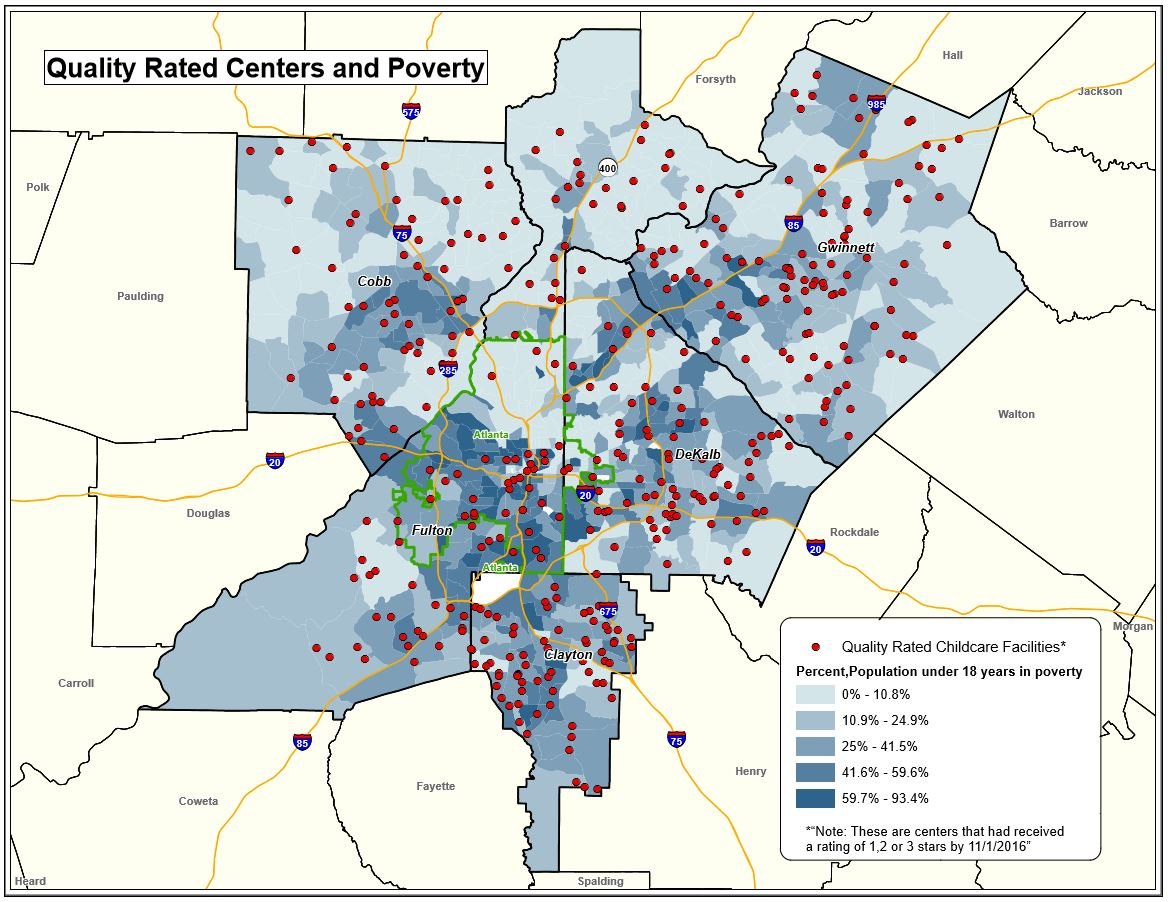Kindergarten readiness is closely linked to future academic achievement and life success. Research shows that children who have access to quality early education programs, or Pre-Kindergarten, develop cognitive, social and behavioral skills necessary for kindergarten readiness.1 And, as kindergarten school readiness results improve, third-grade reading and math scores rise correspondingly.
The Georgia Department of Education is currently developing a statewide assessment of Kindergarten Readiness that will be available in 2018. In the meantime, to help gauge regional Kindergarten Readiness, we have looked at attendance among the region’s 0 to 4 year olds in “High Quality Centers.” “High Quality Centers” include both early care and education programs that meet a set of defined program standards and have been rated for quality (aka “Quality Rated Centers”), as well as public schools that offer a Pre-Kindergarten program.
As of October 2016, there are roughly 44,000 slots in a center that has received a quality rating or in a public Pre-K for approximately 219,000 children age 0-4 in the five-county area.
This means that just 20% of children in the five-county area attend a “high-quality center.”
Promoting educational equity, including access to quality rated centers, not only helps to prepare our region’s children for future educational success, it also improves our regional economy. One of the ways that we can bolster educational equity, is by providing early access to quality education programs for disadvantaged children, where they can receive the necessary cognitive and social-emotional support for long-term success.2
The map below shows the location of “Quality Rated Centers” overlaid on the percentage of the population under 18 years in poverty in the five core counties. As the map shows, quality rated centers are well distributed throughout the region, including areas of our region experiencing the highest levels of poverty. Our challenge as a region is to continue to create additional opportunities for more of our region’s children by increasing access, maintaining equitable access, and promoting Kindergarten Readiness.

Source: Georgia Department of Early Care and Learning (DECAL) and U.S. Census Bureau
1 Schweinhart, L. J., Montie, J., Xiang, Z., Barnett, S.W., Belfield, C.R., & Nores, M. (2005). The High/Scope Perry Preschool Study Through Age 40: Summary, Conclusions, and Frequently Asked Questions. Retrieved from https://www.highscope.org/file/Research/PerryProject/specialsummary_rev2011_02_2.pdf
2 Karoly, L. A., Kilburn, M. R., & Cannon, J. S. (2005). Early Childhood Interventions: Proven Results, Future Promise. Retrieved from https://www.rand.org/content/dam/rand/pubs/monographs/2005/RAND_MG341.pdf

